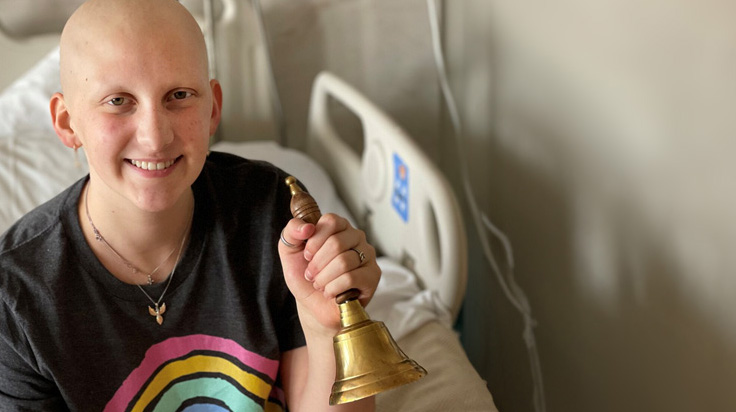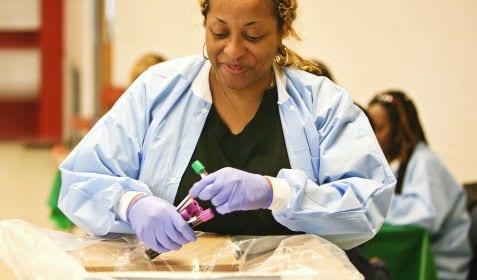Your gift is 100% tax deductible
Ovarian Cancer Research Highlights
Ovarian cancer causes more deaths in women living in the United States than any other cancer of the female reproductive system. The American Cancer Society’s (ACS) research programs help find answers to critical questions:
- How can ovarian cancer be diagnosed early?
- How can the risk of developing ovarian cancer be lowered?
- Are there more effective treatments?
- What could help survivors have a better quality of life?
We continue to fund research to help save more lives in the future.
Ovarian Cancer Still Causes the Most Deaths from Gynecological Cancer
About 90% of cases are epithelial ovarian cancer, and most of those cases are high-grade serous tumors, which have the fewest established risk factors and the worst prognosis.
Risk & Prevention Studies
The ACS’s CPS-II Nutrition Cohort is part of the Collaborative Group on Epidemiological Studies of Ovarian Cancer. This group helped establish the increased risk for ovarian cancer in women with excess body weight and the decreased risk of ovarian cancer for women who use oral contraceptives.”

Ovarian Cancer Statistics on Age
Featured Term: Biomarker
A measurable molecular, genetic, chemical, or physical characteristic in the blood or other bodily fluids, such as sweat and tears, that is a sign of a normal or abnormal process or of a health condition or disease. A biomarker may be used to see how well the body responds to a treatment for a disease.
Featured Term: Susceptibility Biomarkers
A biomarker that signals the potential, or risk, a person has to develop a disease before they have symptoms. For instance, low-density lipoprotein (LDL) cholesterol is a susceptibility biomarker for heart disease.
Early Detection Studies
Ovarian Cancer Statistics on Racial Disparities
Treatment Studies
Ovarian Cancer Advocacy
Listen to Vanessa's story: She's an ovarian cancer survivor and now advocates to help other survivors have access to care.
We Fund Ovarian Cancer Researchers Across the US
The ACS funds scientists who conduct research about ovarian cancer at medical schools, universities, research institutes, and hospitals throughout the United States. We use a rigorous and independent peer review process to select the most innovative research projects proposals to fund.
These grant statistics are as of July 15, 2024.




